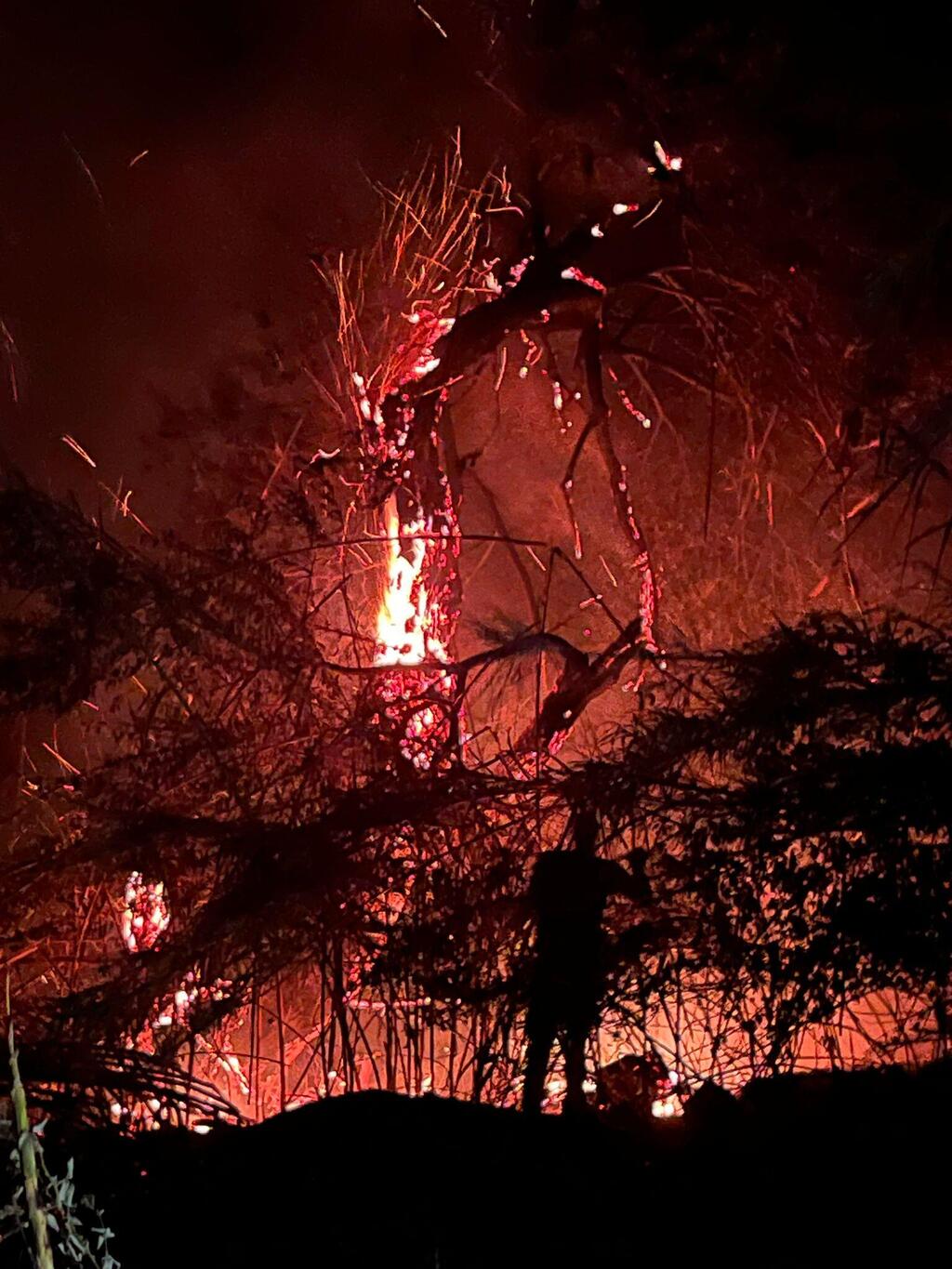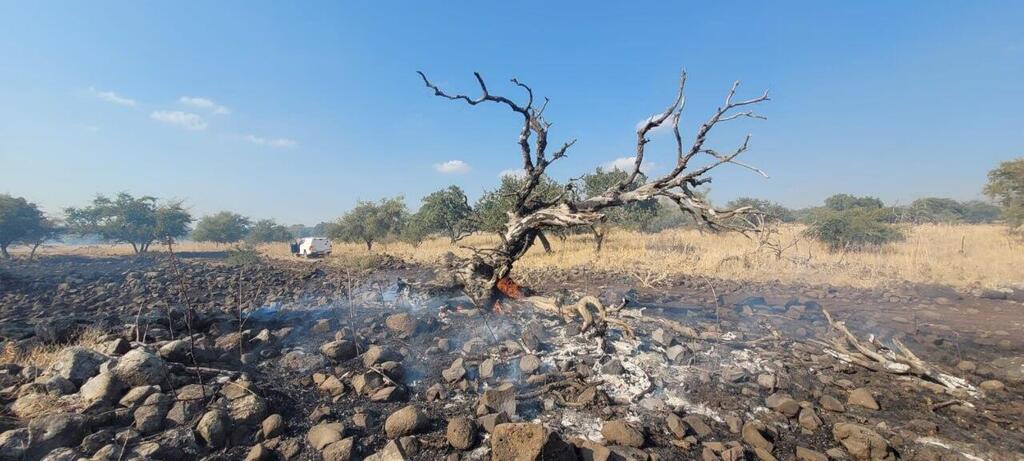Getting your Trinity Audio player ready...
Since October 7, 2023, wildfires have ravaged roughly 84,000 acres across Israel, with about 48,000 acres scorched in the northern region alone. The Golan Heights bore the brunt, losing approximately 29,000 acres, including significant damage to the Yehudia Nature Reserve, which saw fires devastate around 3,800 acres. Most of these blazes were ignited by Hezbollah terrorists' gunfire. Another heavily affected area is the West Bank, where approximately 25,000 acres burned, primarily due to arson.
Wildfires in northern Israel
(Video: Nature and Parks Authority)
Data from the Nature and Parks Authority reveal an unprecedented scale of wildfires this year compared to previous years. Between October 2022 and September 2023, about 11,000 acres burned in the northern region – less than a quarter of the area destroyed since the conflict began. The most extreme previous period, from October 2020 to September 2021, saw nearly 25,000 acres burned in the north, half of this year's devastation.
From the start of the conflict until the end of last month, Israel's nature reserves and national parks hosted approximately 5.94 million visitors, predominantly Israeli (98%). Visitor entry data from the conflict's onset to the end of September shows a 38% decrease in Israeli visitors compared to the same period last year.
The most frequented sites this year include Palmachim Beach National Park (1.23 million visitors), Yarkon-Tel Afek National Park (370,000 visitors), Caesarea National Park (350,000 visitors), Gan HaShlosha National Park (310,000 visitors), Ein Gedi Nature Reserve (290,000 visitors), and Tel Ashkelon National Park (270,000 visitors), which surprisingly thrived despite being closed to visitors until January 2024.
Guy Cohen, Northern District Manager at the Israel Nature and Parks Authority, praised the rangers for dealing with the fires. "Our teams, especially in the Northern District, have been relentlessly combating the fires since the war began, particularly during the hot summer months. Our courageous and dedicated rangers tackle each blaze, often at great personal risk, to save every possible acre of protected nature, trails, or ancient heritage sites. While we've managed to contain fires and damage in many areas, vast lands were impacted. Once the battles subside, nature will need time to heal, and where restoration is necessary, we'll be there to help."
Dr. Amit Dolev, an ecologist for the Northern District at the Israel Nature and Parks Authority, said some forests will renew themselves. "The charred landscapes are expected to be covered with fresh green growth by early winter, and we hope many natural forest trees will recover and sprout from their scorched branches. There are areas, particularly near the Israel-Lebanon border, that we still cannot access to assess the impact on local flora and fauna."
Regarding rehabilitation, Dolev added: "We're preparing restoration plans for the post-conflict period. However, it seems the damage to nature is recoverable, and natural systems will know how to regenerate. Where recovery does not occur naturally, we'll be there to assist."
Ra'aya Shurki, CEO of the Israel Nature and Parks Authority, reflected on the past year. "This has been a complex and painful year marked by conflict, thousands of evacuees, deserted areas, closed sites and citizens kidnapped in Gaza, including one of our employees, Ohad Yahalomi, whom we await alongside all the other hostages. This year has been the most challenging for the Israel Nature and Parks Authority in its 60-year history. Many employees were called to reserve duty, sites in northern Israel were closed, and international tourism was virtually nonexistent. The authority mobilized to support the state, evacuees, and soldiers, protecting nature and heritage sites, preventing and extinguishing numerous fires, and restoring and preserving heritage sites, all while preparing closed sites and open areas for eventual reopening."
"Despite everything, the authority opened three new national parks this year: Tel Lachish, Ein Yehuda, and Tel Kakun, and declared two new nature reserves, Kfira and Helmoniyot Ridge Nature Reserves. Renewal and conservation efforts continue even amid conflict, and we all hope to soon return to normalcy," Shurki concluded.
Get the Ynetnews app on your smartphone:








